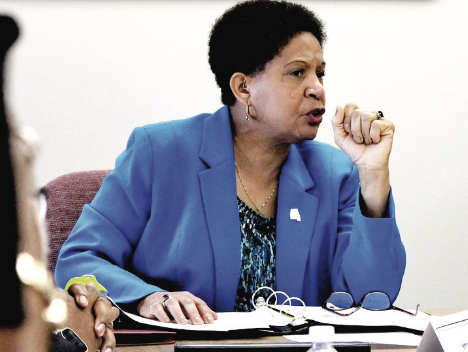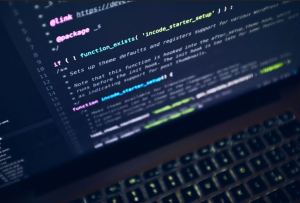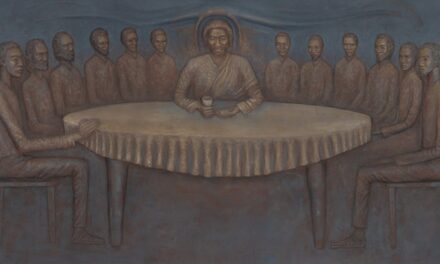By John Sharp
Since the 2020 election, poll workers and secretaries of state have testified throughout the U.S. over how their lives have been threatened over disinformation and threats.
State lawmakers are taking notice, even as the threats continue to spread fear through elections offices nationwide ahead of what is expected to be a tense 2024 general election. Thirteen states have enacted election worker protection laws since 2021, and another 11 states are weighing legislation this year to create felonies meant to protect election workers.
Alabama is one of them.
Under HB100, increased penalties would be applied to someone who commits a crime against an election official if that crime is motivated by the officials’ role in working at the polls.
If a felony is committed against an election official, which is motivated by an individual’s role as an election office, then they would be disqualified from voting.
“I feel strongly that anyone who harms or attempts to harm election workers – the very individuals who facilitate the voting process – should be stripped of their right to vote the same as individuals who are convicted of the 48 felonies listed in the Felony Voter Disqualification Act,” said state Rep. Adline Clark, D-Mobile, the bill’s sponsor.
That list in Alabama is called felonies involving “moral turpitude,” and include some of the most serious crimes of murder, rape, kidnapping, sexual abuse and torture, human trafficking, terrorism, child sex abuse, among other things.
Clarke said the reason she is pitching the legislation is out of concern of safety and welfare of election officials. She and others are unaware of any election official in Alabama being harmed or threatened, adding that “I hope that will never happen.”
Nationwide threats
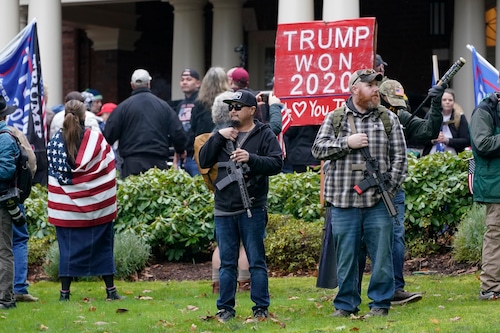
It has become a serious issue in states like Arizona and cities like Philadelphia where election officials are urging the Biden Administration to protect the poll workers.
“The U.S. Postal Service, FBI, and U.S. Department of Justice have reported that election workers have been harassed, threatened, and even mailed envelopes laced with fentanyl,” said Clarke. “Clearly, the intent was to do bodily harm to the election officials to whom the envelopes were mailed.”
Most of those issues seem to be more pronounced in the so-called “swing” states where former President Donald Trump and his supporters aimed their baseless claims about voter fraud during the 2020 election. Following the 2020 election, more than 60 lawsuits brought by Trump and his allies were all thrown out of court.
The Department of Justice announced on Monday it was investigating dozens of threats to election officials and has charged 20 people so far.
In Arizona, the recently appointed sheriff of Maricopa County – the state’s largest county and home to Phoenix – said that one of his top priorities is to investigate threats against election workers and ensure the 2024 elections are safe.
Democratic Arizona Secretary of State Adrian Fontes is urging his state’s lawmakers to pass election worker security legislation. But according to his spokesperson, the Arizona State Legislature – which is majority Republican – has opted not to do so.
“This environment has contributed to a significant turnover among election officials, necessitating a shift in the Secretary of State’s office approach,” said spokesperson J.P. Martin, adding that the office has increased training programs and initiated a fellowship program to pair college interns with county election staff. The efforts have generated national attention, with stories illustrating how Arizona officials are going on the offensive to deal with disinformation and threats.
It’s not just swing states and Democratic cities that are experiencing high turnover over the threats of fear and safety.
In right-leaning South Carolina, the fear from the threats have led to mass resignations where close to three-quarters of local election directors have left their public office within the past four years.
Polling shows that threats and harassments are a concern among election workers. One-quarter of those polled in an Election & Voting Information Center survey in 2022 said they had experienced abuse, harassment, threats as part of their jobs as election workers. An overwhelming majority of the threats are politically-based.
Alabama concerns
In North and South Alabama, election officials say they haven’t seen a similar problem and were unaware about HB100 until contacted by AL.com last week.
However, recruitment of poll workers continues to be a problem.
Mobile County Probate Judge Don Davis said while he is unaware of any incident in which a poll worker was targeted by a person on election day, the county is experiencing greater difficulties in recruiting residents to work the polls.
The reasoning for that, he said: Fear of potential violence at an election poll based on what someone has seen in the media on TV or the Internet in other areas of the country.
Davis added, “I don’t have a particular concern about election poll violence occurring in a Mobile County election poll in November 2024.”
In Limestone County, despite “exponential growth” of the county’s voter rolls since 2012, few incidences have occurred that would place election workers in harm’s way.
“We have had only very limited situations where our sheriff’s deputies are dispatched for a call due to an incident at a polling location,” said Limestone County Probate Judge Charles Woodroof, who has overseen the county’s past 26 elections. The county has approximately 250 poll workers.
Woodroof said the most recent incident he can recall involved a poll watcher – not a government-paid worker – who “took issue with the directions of a poll inspector at a polling location.”
Clarke’s bill initially applied protections to both poll workers and watchers. But during a committee hearing last week, the poll watchers were removed from the bill.
She said she doesn’t have any concerns about that as the bill heads over to the full House for consideration.
“Poll watchers are often volunteers who assist candidates at the polls,” she said. “Unlike public election officials such as probate judges and circuit clerks, their names are not publicized.”
Megan Bellamy, vice-president of law and policy with the Voting Rights Lab, an advocacy group working on the state level to reduce voter restrictions, said that election workers have preferred confidentiality legislation that protects their identities and other efforts that “insulates them from these common forms of harassment.”
There have been 11 bills in six states introduced this year that would allow election workers to keep their addresses confidential. Six states since 2021 – Arizona, California, Colorado, Oregon, Oklahoma, and Washington – have passed laws to keep personal information of election workers confidential.
“That approach of protecting election officials information is proactive instead of reactive,” Bellamy said. “It protects them before (a crime against them) even happens.”
Secretary of State’s views
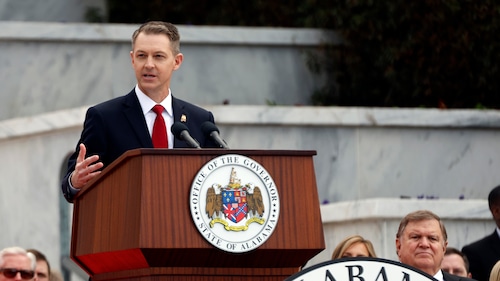
Clark’s provision doesn’t address election worker confidentiality. But she said she is hopeful that Alabama lawmakers will approve a measure that she believes will keep election workers safe.
Republican Alabama Secretary of State Wes Allen, in a statement last week, expressed general support for the election workers.
“I am always supportive of the hard work that poll workers do and I am appreciative of the integral part they play in the election process,” he said.
Clarke, who has long backed efforts to support no-excuse absentee voting in Alabama and mail-in voting provisions, said she believes the election worker protections in HB100 adhere to the GOP’s commitments this session to ensure “our election system remains safe and secure.”
Some of those provisions have been controversial. On Thursday, a group of civil rights and voting rights groups filed a federal lawsuit to block the enforcement of the state’s new law that criminalizes certain kinds of voter assistance with filling out absentee ballot applications.
That new law was SB1 and was approved with Republican support and without backing from Democratic lawmakers.
Allen, who is a defendant in the federal lawsuit, declined to comment about it other than to say he remains “dedicated to ensuring fair, secure, and transparent elections. SB1 provides Alabama voters with strong protection against activists who profit from the absentee elections process. I stand firm in my support of SB1 because now, under Alabama law, Alabama votes are not for sale.”

